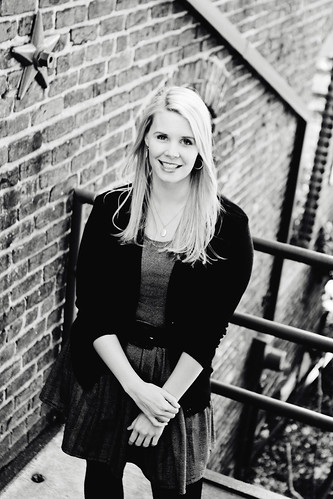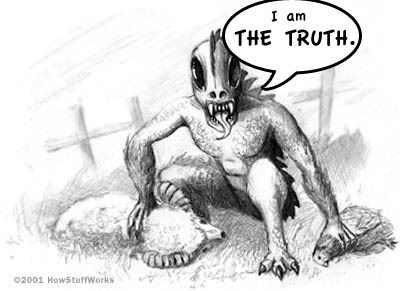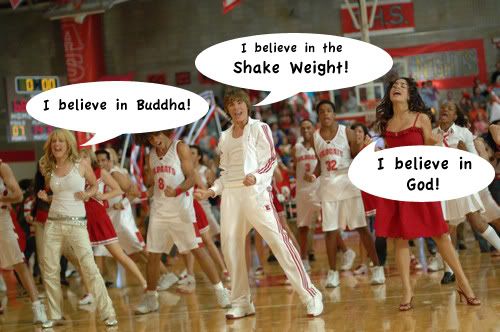The Truth Sessions are back! If you're new to my blog, the Truth Sessions is a series I started a few months ago in which I interview people from all different walks of life about truth: whether they think universal truths exist, what in their life has led them to their beliefs about truth, what truths they see most prevalent in the world, etc.

Today's featured answer-er is Jackson Pearce, an author who's written several really creative young adult books including SISTERS RED, SWEETLY, and her upcoming contemporary novel, PURITY. She's also what I would consider a world-class hoola-hooper and owns a pet she refers to as Space Dog. So yeah, she's pretty cool.
I loved reading her perspective on truth. She brought up some very thoughtful, interesting points (while still managing to make it humorous), and I'm excited to share them with you guys.
I asked her my short list of questions about truth (you can read them all in Volume 3 here), and she wrote back one comprehensive answer (complete with visual aids!).
So instead of trying to format it like the others, I will just share with you her thoughts. Hope you enjoy!
Jackson: I believe in them [universal truths], and believe that we're searching for them, and believe that we only know of one for certain.
Broken down:
I believe in them- I believe that there is something bigger than me-- maybe that's God, maybe it's a flying spaghetti monster, maybe it's just a heaven where belief in God requires just as much faith as it does here on good ol' earth. I believe that Anne Frank was right and all people really are good at heart. I believe that we're all created equal and that double parkers deserve their own circle of hell. And in love and kindness and honor and sex and dignity and all sorts of other delightful things.
In fact, I believe those things are universal truths so strongly that even using the phrase "I believe" seems silly-- it's like saying "I believe I have feet!" or "I believe in oxygen!" But that said, I wager that somewhere out there, there's a person who wouldn't categorize "I believe in something bigger than myself" alongside "I believe in oxygen." Somewhere out there is a person that would categorize "I believe in something bigger than myself" alongside "I believe in el chupacabra."*

Which brings me to my second point...
I believe we're searching for them- While there are dozens of things that, to me, are undeniably universal truths, at the end those truths are little more than the thoughts of a twenty-something writer who is having bacon for dinner (again).
I can probably gather a small crowd of other bacon-eaters recognize the same truths, but still, my Bacon Buddies and I are no universe-- we're just people who happen to think alike. If there are seven of us or seven billion of us, it really doesn't make a difference-- we're mere mortals and those truths we find so undeniable are our opinions, thoughts, and beliefs, and likely vary wildly from the opinions, thoughts, and beliefs of other mere mortals. We can cluster together and give ourselves a name and try to convince the rest of the world that we're right, but let's face it-- we could be incorrect.
Because a universal truth, by its very definition, is something that exists whether people know about it or not, whether they're right about it or not, whether they love or hate or eat bacon or not. To acknowledge a universal truth exists means to acknowledge that it's very possible you're totally wrong about what it is.
Basically: Truths are a constant, but humans are not. And so we look and look and look for other humans that have more answers than we do, we search for signs and stars and scrolls, we wage wars and commit genocides and pay scientists to do incredibly awesome things, all in the search for those universal truths because, while we can't all agree on what they are, we can all agree that they are The Most Important thing.
The one we know:
In our struggle to identify what truths are, we've landed on one truth that we can identify: That everyone is looking for the truth. It's in our longing to understand the universal and ourselves better that we are undeniably all in the same boat with no clue what river we're on or how to paddle or if we're pirates or the cast of Deadliest Catch. Which, really, is a beautiful thing. We pervert it and make it ugly sometimes, but really, in the immortal words of the first High School Musical movie, we're all in this together.

LM: So, based on your answer, could a truth exist if no one believed it or knew about it? Since a truth is a principle/idea, doesn't someone have to know it or believe it for it to exist? If not, does that assume there is something outside of the population of the world (God, or other beings in the universe---since you mentioned that you and your group are no universe) that attest to it?
Jackson: I think a truth could absolutely exist if no on believed it or knew about it, but that's unfortunately a very "if a tree falls in the forest and no one hears it, does it make a sound?" question. A truth is a principle/idea, so perhaps some truths might only exist if someone believes in them (no examples come to mind, alas), but if we're speaking on religious terms...wouldn't most followers of a particular faith say that the existence of a totally ignorant non-believer doesn't make their faith any less true. I don't think a truth requires anyone-- God, man, el chupacabra-- to attest to it. It's a truth, it's bigger, in a way, than all of those things (though in the case of God, I suppose it depends on your definition and faith-- though I feel it's fair to argue that a universal truth is in the very least bigger than man's understanding of God which is naturally somewhat limited since, well...we're man and he's God).
---
I love her observation that we're all searching for truth. I think that definitely applies across the board---especially at our age.
What do you think? Could a truth still exist even if no one believes in it or knows about it (yet)? As always, please remember to be respectful of each other's views in the comments! Thanks!